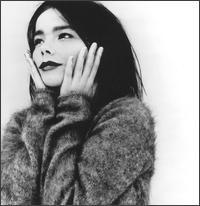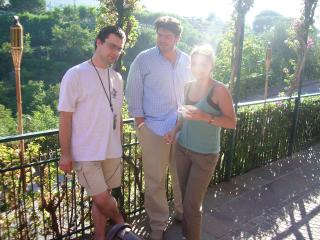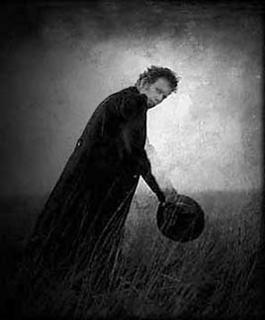GUIDE ROUTARD
La Belgique
Nom féminin. Pays européen peuplé de Belges. La Belgique est voisine de la France, de la Hollande, de l'Allemagne et du Luxembourg. Elle est bordée par la mer du Nord (pas de chance !).
Géographie
La Belgique est un pays à peu près plat de 30.000 km2 dont 20.000 km2 de champs de pommes de terre. Le reste est principalement recouvert d'autoroutes qui sont éclairées la nuit quand personne ne roule, ce qui fait la fierté du pays.
Climat
Il pleut en hiver et il pleut le reste du temps.
Population
La Belgique est peuplée d'environ 10 millions d'habitants. Une petite partie d'entre eux sont Belges. Les autres sont Flamands,Wallons, Bruxellois ou autres.
Langues
Le néerlandais - La majorité de la population parle une langue gitane, mélange de ce qu'il y a de pire en allemand et en anglais. On appelle cela le néerlandais. Cette langue est aussi celle qui est parlée par les nomades qui en été se déplacent en caravane sur les routes de France. Certains prétendent que les ancêtres des néerlandophones étaient des Hollandais qui sont tombés en panne sur la route de leurs vacances dans le Sud.
Le français - Pire, les autres prétendent parler le français. Outre le fait qu'ils ont souvent un accent étrange et rural, ils emploient des mots et des expressions comme: "septante", "nonante", "midi quart", "tantôt","gosette","houit (7+1)" .
Religion
Les Flamands et les Ardennais sont catholiques et obsédés sexuels; les Wallons sont socialistes et obsédés sexuels ; les Bruxellois sont musulmans et obsédés sexuels.
Agriculture
La culture principale est la pomme de terre. Les élevages principaux sont des élevages de poulets à la dioxine.
Industrie
Les principales industries sont la traite des blanches, la congélation des frites, les fabriques de mayonnaise et de chocolat et surtout les brasseries (la Belgique est le seul pays qui compte autant de brasseries que d'habitants).
Exportations
La Belgique exporte des poulets, de la bière et du chocolat.
Importations
Les belges importent de la dioxine, du fromage hollandais et du vin français.
Gastronomie
Le repas typique belge est compose d'un kilo de frites, d'un kilo de mayonnaise et d'un litre de bière. C'est une alimentation qui peutêtre variée puisqu'il existe des centaines de bières différentes. Les belges sont réputés pour leurs chocolats gras et lourds dont ils gardent la recette secrète.. Cependant, il est vraisemblable qu'il yait de la mayonnaise dans ces chocolats.
Politique
La Belgique est une monarchie constitutionnelle. Le Roi n'a pratiquement pas de pouvoir. Les ministres non plus. La Belgique comporte en effet une demi-douzaine de gouvernements, ce qui fait qu'aucune décision sérieuse n'est jamais prise. Cependant la Belgique est le siège de prestigieuses organizations internationales aussi dangereuses qu'inutiles comme l'OTAN ou laCommission de Bruxelles (appelée aussi la " grosse commission " ).
Histoire (résumé)
En 1830, les belges sont sortis des forêts ardennaises où ils vivaient cachés depuis des millénaires et ont mis les Hollandais dehors.
Tourisme
Les endroits à visiter en Belgique sont Anvers, Bruges,Bruxelles et es forêts ardennaises.
Anvers est connu pour son zoo. Les animaux peuvent y passer leur journée à regarder les visiteurs défiler. C'est le seul zoo au monde où on jette aux singes des frites plutôt que des cacahuètes. A Anvers, on peut également apercevoir des commerces spécialisés avec en vitrine des femmes de toutes les tailles et de tous les genres.
Bruges est célèbre dans le monde entier pour ses égouts à ciel ouvert.
Bruxelles est connue pour : la Grand Place (la plus petite Grand Place du monde); l'Atomium, qui représente une molécule de frite géante grossie 140 milliards de fois (ce monument n'est pas comestible); le Manneken Pis, une statue de gosse en train d'uriner en pleine rue ( par contre si vous essayez de faire la même chose, vous risquez d'avoir des ennuis avec la police).
Us et coutumes
Manger - Si les français aiment bien manger, les belges, eux,sont des goinfres. Ils avalent n'importe quoi, tant que c'est gras, lourd et indigeste. Là-bas, faites donc la même chose, sinon vous serez mal vu.
Tant pis pour la tourista.
Dire bonjour - En français, pas de problème. En néerlandais, il faut dire "couille molle" ou quelque chose dans le genre. Afin de préserver votre intégrité physique, veillez à ne jamais dire bonjour en français à un Flamand.
Faire la bise aux filles - Attention en faisant la bise à une belge. Il faut en faire une ou trois. Si vous essayez d'en faire 2 ou 4, vous passerez pour un obsédé sexuel. Avec un peu de malchance, elle risque deporter plainte pour agression. Faites comme moi dites 'Salut' ou à la rigueur "couille molle".
Faire la bise aux garçons - particularité belge : la bise entre garçons est obligatoire en Wallonie mais interdite en Flandre (et les Flamands ne rigolent pas avec ça; il semblerait qu'un parti néo-nazi flamand a récolté 24 % des voix lors des dernières élections en basant uniquement son programme sur la criminalisation de la bise entre garçons et l'usage de la langue française).
Vaccin
Il ne faut pas de vaccin pour voyager en Belgique. Prévoyez toutefois des médicaments pour traiter vos maux d'estomacs et vos indigestions.
Les belges les plus célèbres
Les belges les plus connus sont : Enzo Scifo, Marc Dutroux, Plastic Bertrand, Jacques Brel, Jean Claude Vandamme, Claude Barzotti, Eddy Merckx, Jacky Ickx, Benoît Poelvoorde, Georges Simenon et Hugo Claus.
Via e-mail





